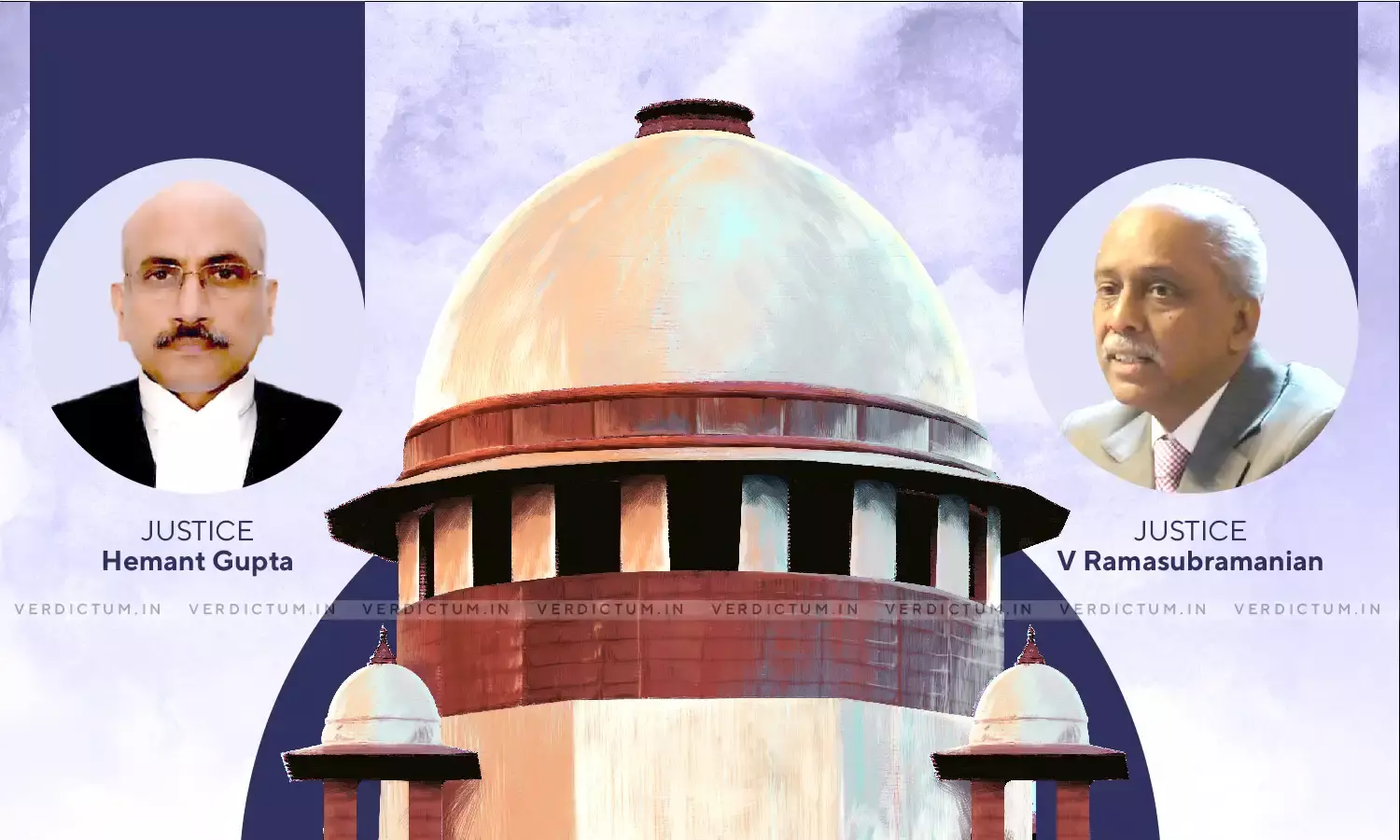Occupancy Rights Certificate Can't Be Issued After Grant Of Ownership Certificate U/s. 38-E of AP Tenancy and Agricultural Lands Act: Supreme Court Reiterates
A Division Bench of the Supreme Court comprising of Justice Hemant Gupta and Justice V. Ramasubramanian relied upon the dicta in Thota Sridhar Reddy and Ors. vs. Mandala Ramulamma and Others, 2021 SCC OnLine SC 851 to hold that there could not be any occupancy rights certificate as the petitioner was divested of the ownership by virtue of the grant of ownership certificate under Section 38E of the Andhra Pradesh (Telangana Area) Tenancy and Agricultural Lands Act, 1950.
Mr. Shyam Divan, Senior Advocate appeared on behalf of the petitioner while Mr. D. Ramakrishna Reddy, Advocate advanced submissions on behalf of the respondent.
Factual Matrix:
The respondent had filed a suit seeking declaration to the effect that he was the absolute owner in possession and enjoyment of the suit property; that the gift settlement deed executed in favour of the petitioner was null and void; and seeking a permanent injunction restraining the petitioner from interfering with his possession and enjoyment of the suit property.
The respondent also moved an application, during the pendency of the suit, seeking an interim injunction. The Trial Court dismissed the application. The respondent filed an appeal. The Telangana High Court allowed the appeal and an interim injunction was granted pending disposal of the suit. Hence, the appeal before the Supreme Court.
Analysis of the Court: -
The respondent had filed the sale deed in his favour as also in favour of his vendor. The petitioner had filed the gift settlement deed, on the basis of which, he was claiming rights in the suit property.
The High Court had reversed the order of the Trial Court and pointed out that the vendor of the respondent was issued a certificate under Exhibit P-21 under Section 38-E of the Act; that the certificate was proof enough to show the passing of title in favour of the predecessor of the respondent, i.e., the vendor; that the Record of Rights showed, prima facie, that respondent was in possession of the suit property when the suit was instituted; and therefore, the person in possession was to be granted an interim order.
The High Court observed that the person under whose name the petitioner was claiming title, could not have acquired any right after the issuance of the certificate under Section 38-E of the Act in favour of the vendor of the respondent.
Another argument before the Court was that the vendor of the respondent had filed a suit which was dismissed as not pressed. The Supreme Court while issuing notice was prima facie impressed with the argument that withdrawal of the prior suit by the vendor of the respondent would have a serious bearing upon the prayer for interim injunction in the present suit.
On this score, it was contended by the petitioner that respondent was a purchaser pendente lite and when his suit is barred by law, interim injunction was not warranted. The Supreme Court was not impressed with this submission. The Court approved the reasoning of the High Court and held that previous proceeding will not be an impediment in the way of the respondent filing the instant suit.
On the question concerning Section 38-E of the Act, the Court relied upon Thota Sridhar Reddy's case and observed as follows.
"Paragraph 48 of the said decision which reads as follows actually supports the view taken by the High Court in paragraph 49 of the impugned order.
"The appeals allegedly filed by the protected tenant against the grant of occupancy rights certificate and subsequently being withdrawn is wholly inconsequential as after the grant of ownership certificate in terms of Section 38E of the Tenancy Act, the protected tenants are deemed to be owners. Once the protected tenants are deemed to be owners, there could not be any occupancy rights certificate as the purchasers were divested of their ownership by virtue of the grant of ownership certificate under Section 38E of the Tenancy Act. Such certificate was also not disputed by the purchasers. Therefore, title of the protected tenants is complete and the ownership unambiguously vests with them."
Conclusion: -
The Court, thus, came to the conclusion that the order of the High Court does not warrant any interference under Article 136 and hence, the SLP was dismissed.
Click here to read/download the Judgment




